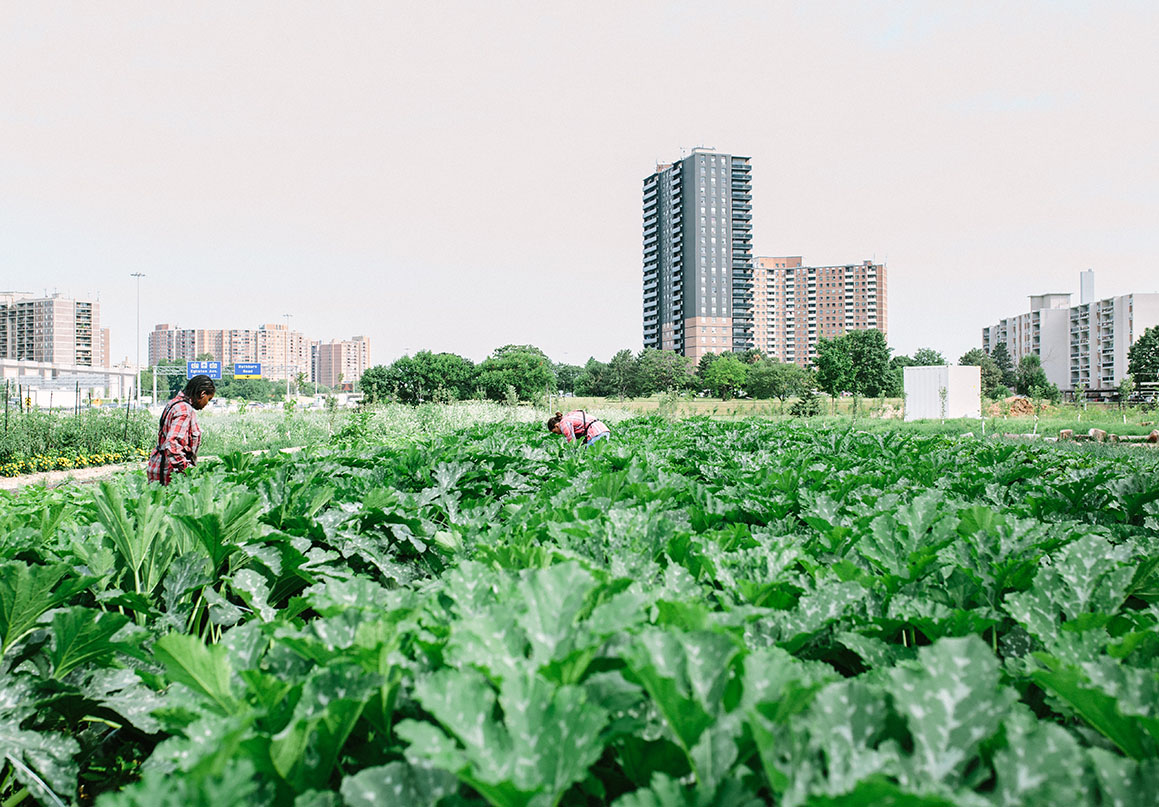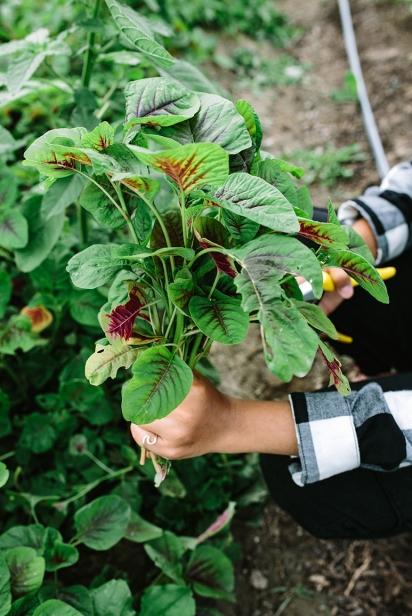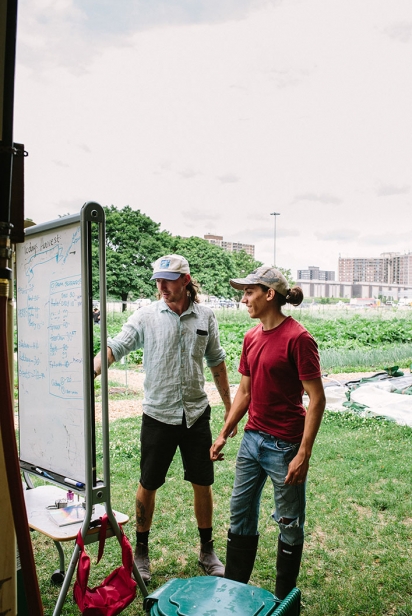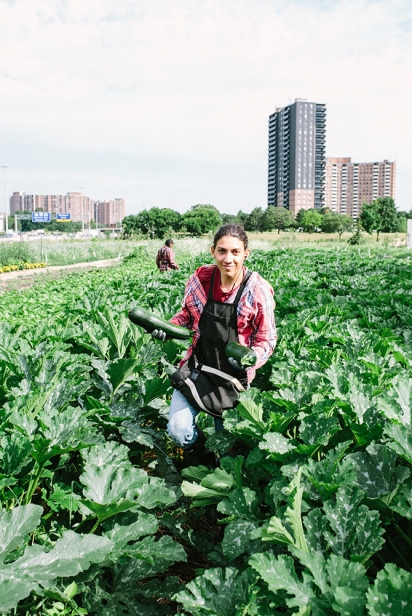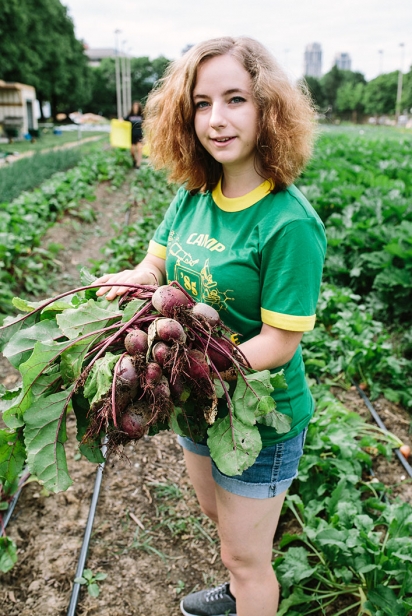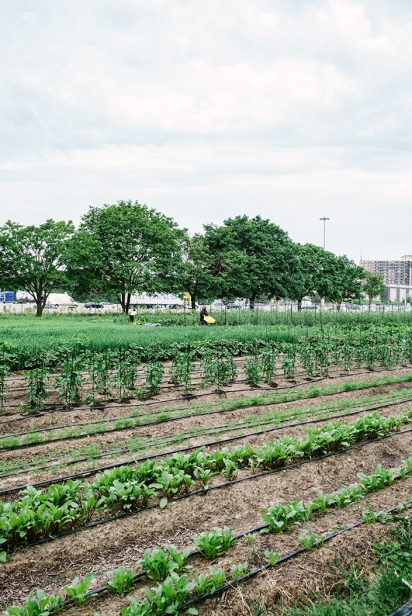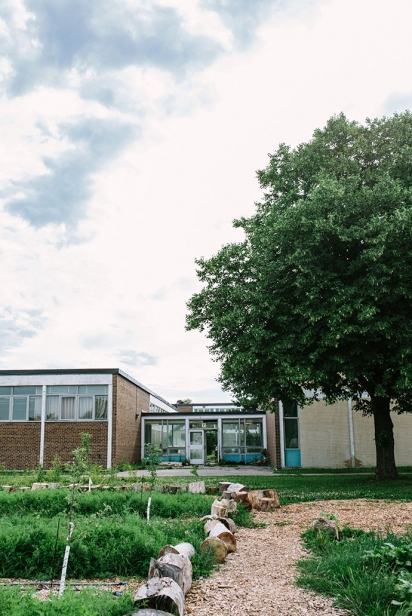From Schoolyard to Table
Tilling soil and getting your hands and feet covered in dirt isn’t part of the typical high school curriculum. But for Sara Wara, a recent Burnhamthorpe Collegiate Institute (BCI) graduate, the experience working on her school’s farm gave her a more fulsome understanding of life. “It isn’t always about how far you’ll get or how much you get, it’s about enjoying the little things like being one with nature and being around your peers,” she says about participating in School Grown, an educational program run by Toronto FoodShare.
School Grown is one of the non-profit’s numerous food security and food literacy initiatives in Toronto. Founded in 2010, it provides high school-aged youth and young adults with skills in urban agriculture, cooking and environmental stewardship. It specifically focuses on areas where “there is less access to fresh, affordable, nutritious and culturally relevant foods,” explains Lou Boileau, School Grown’s youth engagement facilitator.
Classes may officially be over, but as the weather gets warmer, School Grown heads into one of its busiest times of the year.
“The farm season can be very demanding, both physically and time-wise,” Boileau says.
It’s a demanding experience that Wara compares to raising a child. “We, the workers, are the mother and the farm is our baby, with a lot of time and effort, we can watch this child flourish and that makes me really happy,” she says. The graduate plans to use her new plant-mothering skills to study urban agriculture this coming fall.
The program managers at FoodShare work directly with the Toronto District School Board (TDSB), high schools and teachers to facilitate the School Grown program from April to October each year. At each school, including BCI, they work alongside two to five teachers and approximately 20 students. Often making the most of underused spaces, such as rooftops or tennis courts, the team designs and implements gardens where students can learn about growing food from seed, enjoy the fruits of their labour and learn to run their own market stands.
For Aalia Jamali, who plans to study business at university this fall, that experience has been invaluable.
“Working [on] the farm has taught me more than I ever thought I could learn,” says the BCI graduate. The experience dispelled the myth she held that farming was “tossing around seeds and using a shovel.” Her grandmother had a huge garden, so she came to the team with some experience, but learned something new every day while working on BCI’s two and- a-half-acre farm, she says.
Boileau, who hails from Ojibwa territory in northern Ontario, draws on her indepth background in youth-run initiatives in the non-profit sector and personal interest and experience in community gardening. Along with her colleague, Adam Dirks, the pair make up School Grown’s full-time staff members — a modest, but hardworking team given the breadth and success of the program. “We prefer to keep our projects at a manageable size, with lots of community involvement as opposed to focusing on expansion. It is currently a lot of work, especially considering our size,” Boileau says.
“During the growing season, we take on interns, Canada Summer Jobs students (aged 22 to 30) and hire youth from the high schools under the Focus on Youth Program,” a TDSB program providing employment and leadership opportunities for youth in Toronto’s inner-city areas.
“In the summer months, we often have as many as 20 people helping to grow, harvest and care for the farm space.”
The program’s newest farm at BCI in west Etobicoke operates an on-site farmers’ market on Thursdays. “At Burnhamthorpe, we’ve had an incredible interest in the farm from teachers and students. We have some students who volunteer with us daily.”
School Grown also tends a rooftop garden at Eastdale Collegiate on the city’s east side. The team facilitates workshops in the spring, as part of the students’ science classes. The students are involved in all of the preliminary stages of growing, planting seedlings and caring for them, as well as preparing garden beds. They also hire the students for the summer so they are also involved in farming the space.
At downtown’s Heydon Park Secondary School, a lush raised garden bed took over the vacant tennis court. The cafeteria windows look directly onto the garden space so students can see the crops growing while enjoying the fruits of their labour — such as leafy greens, herbs and peppers — in the school’s salad bar program. The lunch is free and the school has been successful in getting many students to stay at school to eat healthy, school-grown vegetables, rather than going out to purchase fast-food options. Students in the hospitality program are responsible for planning and preparing the weekly salad bar and have even created successful themed menus for their peers.
The program is not without its challenges, Boileau says, explaining that it can be difficult to “maintain balance and create a sustainable workplace when the farm needs to be farmed.”
Another challenge, she says, “is creating a space where the participants feel comfortable working with the land. There are a number of reasons why students are sometimes uncomfortable or not familiar working with dirt — often cultural and historical. Changing stigmas about working with the land and seeing students blossom and come to love growing has been amazing.”
FoodShare Toronto
120 Industry St., Unit C, Toronto, Ont.
foodshare.net | 416.363.6441 | @foodshareto


